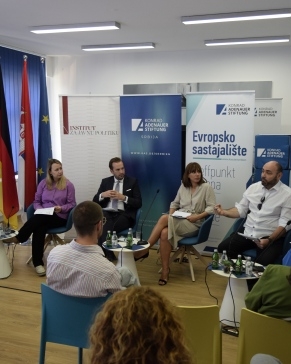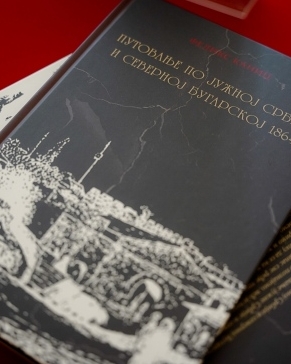
Lawyer Marko Kljajević, member of the Public Policy Institute, confirmed today in the Morning programme of TV Pink, that he is among initiators of the establishment of the Commission that should investigate the political background of the assassination of Prime minister of Serbia dr Zoran Djindjić.
Kljajević, who was the presiding judge on the trial for murder of Zoran Djindjić, said that the initiative for founding the Commission has been sent to the Government of Serbia for consideration after the resolution by European Parliament. He pointed out that this initiative was submitted considerably before the call for early parliamentary elections in Serbia, and that submitters would be members of the Commission. “We are asking that the state responds both to the public demand and the request from EU for the state Commission”, Kljajević has said, adding that the Commission is essentially in operation, and that the things should be only formalized.
Kljajević emphasized that the political background of the assassination must be investigated, which is the course of action that many won’t like, but that should send the signal to the majority of citizens that the state adopts the rule of law and that there won’t be untouchable people anymore, who couldn’t even be heard as a witness.
He has complained that he had a problem as a judge, caused by systematic obstruction by the executive branch of the government – primarily by the former Government – which judged/persecuted him and the court, in coordination with defendants and defense attorneys.
Kljajević specified that he has year 2003 and the very beginning of the trial in mind. He added that he was, in fact, the object of the trial and that he was accused that he was the member of the “Zemun criminal gang”. The trial focused on him instead on the assassination.
He said that he won’t prejudice and that he shouldn’t mention any names, because it would be the task of the Commission’s investigation.
Kljajević mentioned that state structures responded positively to this initiative, and that the Commission’s founding wasn’t tied to parliamentary elections or Prime minister Aleksandar Vučić. It is not the Vučić’s Commission, he responded to the critics, asking publicly who gave them the license to decide who should deal with this issue.
Kljajević said that certain political forces, which had considerable influence on obstruction in the past, failed to pass the census on the elections, so he believes that it would facilitate dealing with this topic.
Kljajević asserted that the representative of the state prosecution should participate in Commission’s work, and that criminal liability must be determined exclusively by legal means. He added that there’s a difference whether someone was instigator or inspirer. He also added that many public figures were delighted with Prime minister’s assassination.
Kljajević was elected for the judge of the District court in Belgrade in 2001. As the presiding judge on the trial for murder of Prime minister Zoran Djindjić, he led the process from the very beginning in 2003, but he withdrew in 2006 because of the systematic obstruction of the process.
Source: Tanjug




